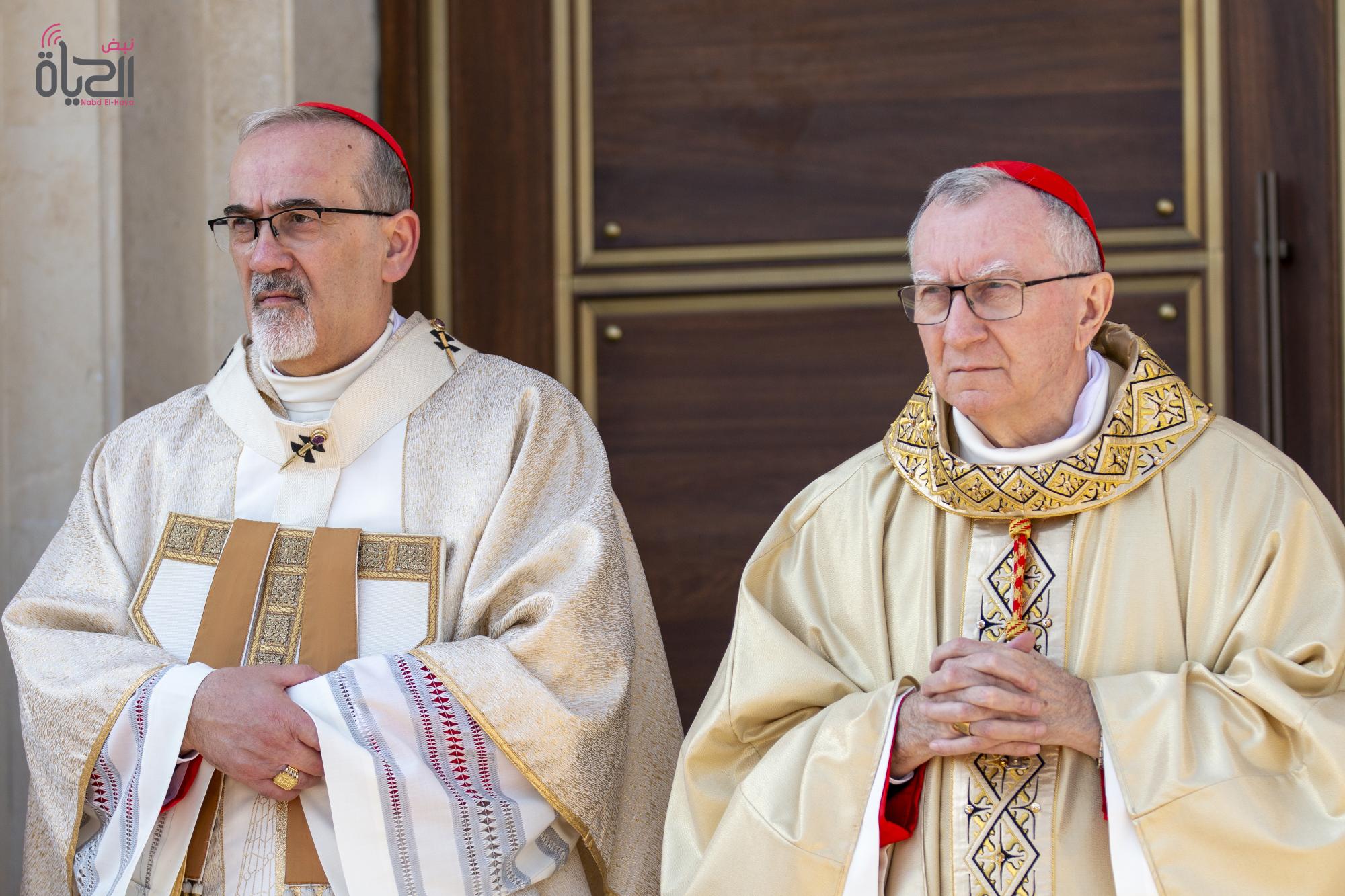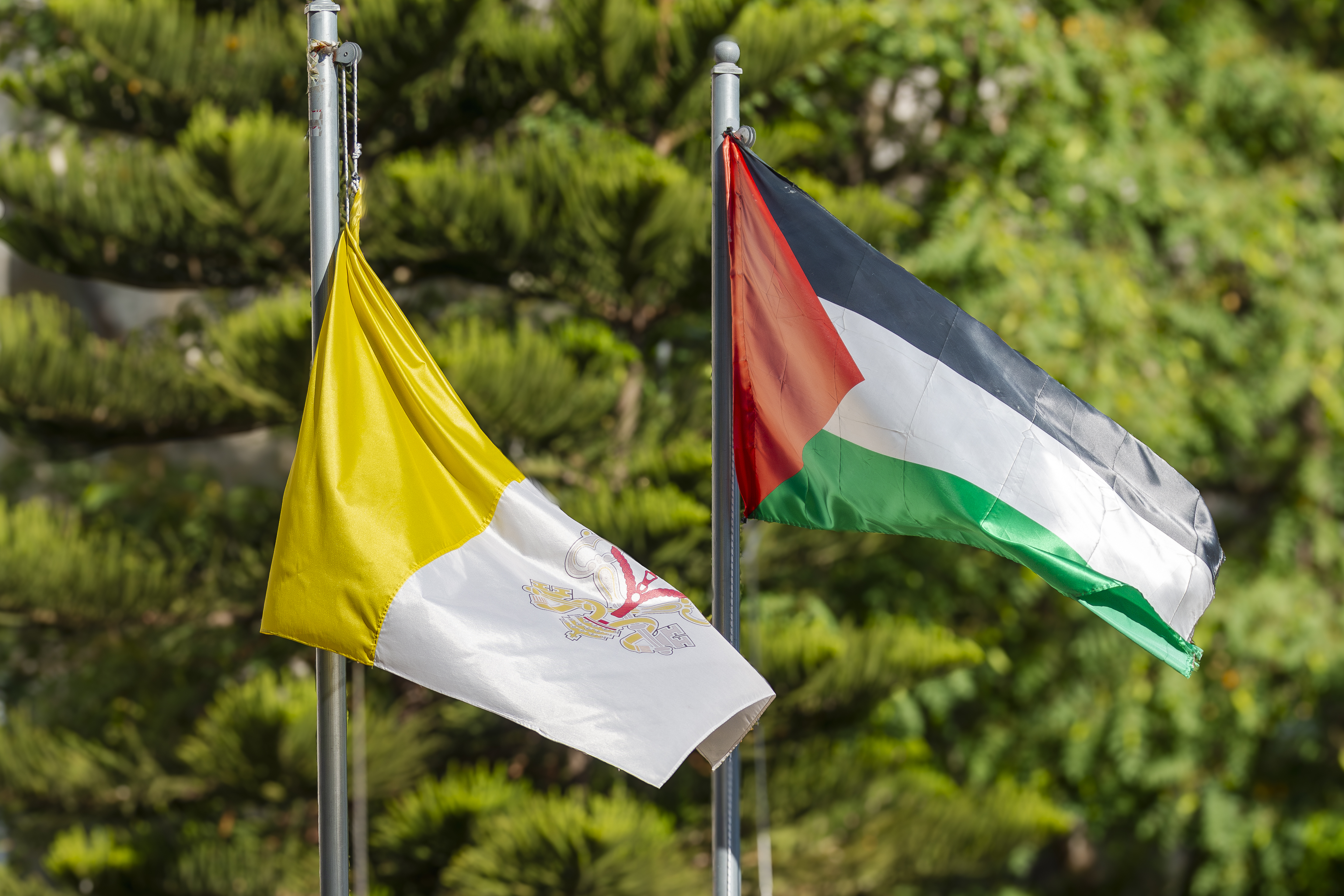
By: Sand Sahelia
Cardinal Pietro Parolin, Secretary of State of the Holy See, has made a statement on the second anniversary of the October 7 events—and the ensuing devastating war on Gaza—that marks a turning point in the Vatican’s stance toward the Israeli–Palestinian conflict. The language chosen by the Vatican’s second‑ranking official does more than portray tragedy; it signals a tangible shift toward a more balanced and humane approach, one that restores dignity to Palestinian victims and calls upon the international community to shoulder its moral and political responsibility.
A Clear Condemnation of Disproportionate Force
Speaking to Vatican media, Parolin described the situation in Gaza as having “catastrophic and inhuman consequences,” insisting that “it is unacceptable to reduce human beings to mere collateral damage.” This pivotal phrase moves the Vatican beyond general moral condemnation into an explicit legal position that rejects any justification for civilian deaths—even under claims of “self‑defense.”
His remarks underscore the loss of proportionality in the use of force, a foundational principle of international humanitarian law. When the Cardinal evokes images of “children buried under rubble,” he is not simply painting a tragic scene—he is issuing an implicit moral and legal indictment of Israeli policy.
Between Condemnation and Political Awareness
Although Parolin condemned Hamas’s attack on Israeli civilians—calling it “inhuman and indefensible”—he quickly widened the frame, urging society to “restore the voice of reason and abandon the logic of blind vengeance.” He further blamed the global community for its passivity: “It is not enough for the international family to say what is happening is unacceptable, and then allow it to continue.”
As the Vatican’s top diplomat after the Pope, is rare in its critique of international silence. It reaffirms that the Holy See does not bow to political alliances but seeks to act as a global moral voice.
New Language in Describing Catastrophe
In one of his most striking statements, Parolin said that Gaza now reveals “a defenseless people, exhausted in a ruined land.” Such wording reflects a clear departure in Vatican discourse—from framing Gaza as an abstract humanitarian crisis to recognizing a people under systematic destruction and collective punishment.
This description aligns with repeated calls by Pope Leo XIV to respect humanitarian law, to put an end to forced displacement, and to halt collective punishment. The Vatican’s diplomatic rhetoric today must be read in this context: Rome is reshaping its role not as a neutral mediator, but as an advocate for justice.

A Clear Political Stance on Palestinian Statehood
Politically, Parolin reaffirmed Vatican support for an independent Palestinian state along the 1967 lines—encompassing the West Bank, East Jerusalem, and Gaza—while asserting that “Israeli statements and actions are attempting to prevent a real Palestinian state.”
With this clarity, the Vatican moves from symbolic support of Palestinian aspirations to embracing a defined political vision that holds Israel accountable for obstructing the two‑state solution. This stance reflects a deeper understanding of the conflict’s structure and a shift from humanitarian language toward legal and political assertion in line with international legitimacy.
Palestinian Christians: Suffering and Identity
Parolin also made sure to highlight the vital role of Palestinian Christians in Gaza, “fully sharing in the suffering of their torn Palestinian people,” seeing their endurance as a living testimony to faith and hope amid the tragedy. This is no mere symbolic nod; it carries political and cultural content, connecting Christian presence in the Holy Land with the national and social identity of Palestinians, and countering any narrative that isolates Arab Christians from their socio‑political context. In doing so, Parolin integrates religious dimension with political reality—a stance consistent with previous papal messages stressing the shared fate of Christians and Muslims in Palestine.
Toward a New Catholic Discourse
Cardinal Parolin’s speech represents a qualitative shift in how the Catholic Church positions itself on Middle Eastern issues—especially Palestine. The Church no longer settles for vague calls for “comprehensive peace.” It is re‑rooting itself alongside suffering peoples, particularly the Palestinians, treated here not as collateral victims but as subjects of grave violation of justice and dignity.
In his measured, balanced language, Parolin delivers a two‑fold message: to Israel, that force alone offers no permanent legitimacy; and to the international community, that silence is no longer an ethically acceptable option.
Summary: A Human‑Rights Discourse in Diplomatic Clothing
Parolin’s speech redefines the Vatican approach to the Palestinian cause through a human‑rights framework that balances unequivocal condemnation of violence with a call for justice. It is a discourse that merges conscience with political realism, restoring moral legitimacy to the Palestinian narrative within global Catholic circles.
Two years after October 7, Palestinians are no longer relegated to the margins of peace appeals. Parolin’s declarations place their suffering front and center, demanding that the world see them as human beings deserving of justice—not as “mere collateral damage” that vanishes in the footnotes of international reports.
